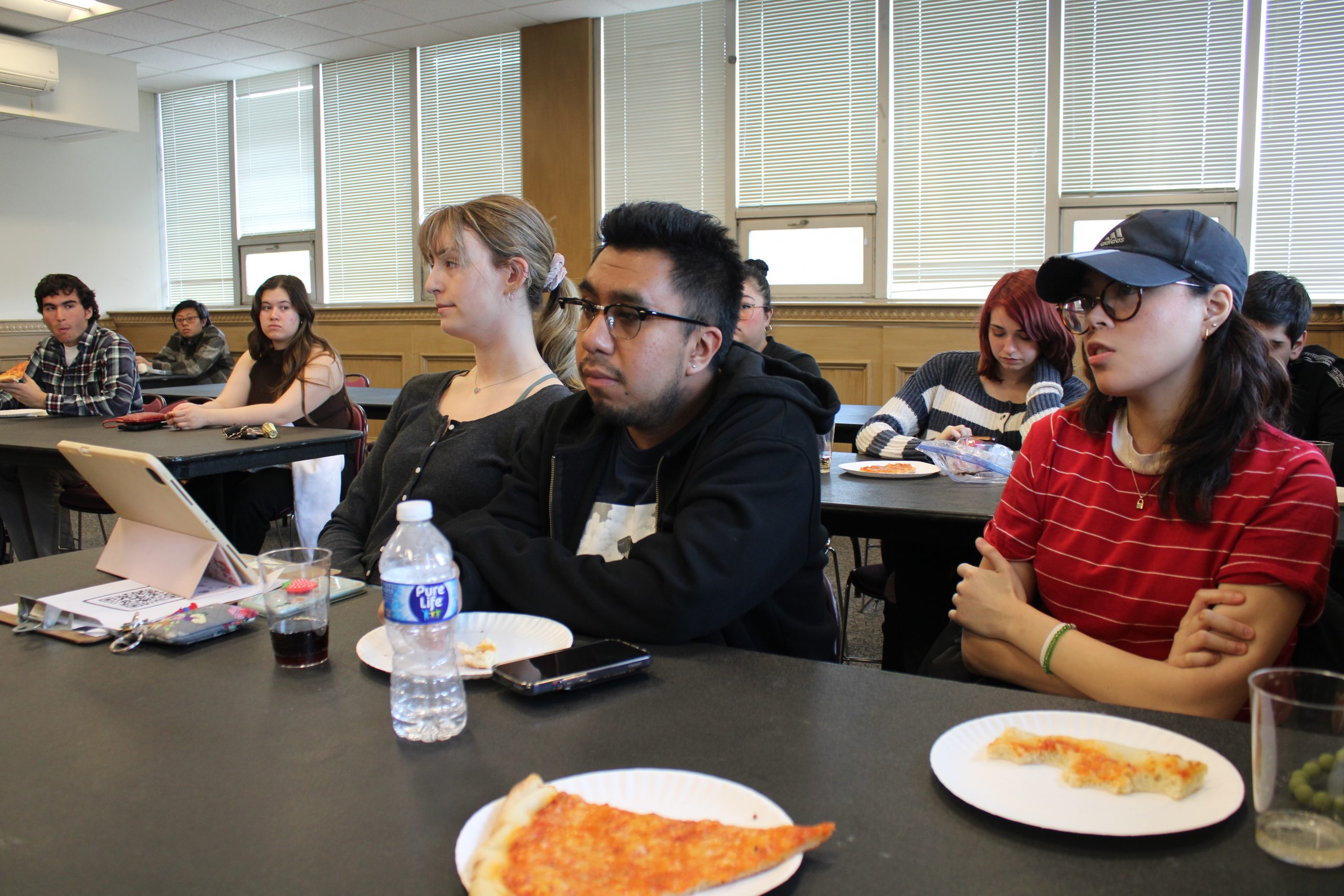On Monday April 24th, members of the Queens College student body were invited to voice their concerns and identify important priorities for change in a ‘Listening Tour’ session held by administrators from President Frank Wu’s office. That session is a part of a larger Listening Tour initiative by the college designed to advance the goals outlined in the Queens College’s ‘Strategic Plan’ for the future by identifying the most important priorities for change. How do they plan to identify possible changes on campus? By listening to the students.
In the March edition of ‘Frankly Speaking’ an announcement from President Wu read, “Chief of Staff Desirae Colvin and Operations Manager Dhanya Bell will be conducting a Listening Tour to improve day-to-day functions at Queens College. The emphasis for this project will be on students and how to enhance their experience and success.”
The Listening Tour consists of a series of sessions that are designed to give members of the Queens College community a free and open forum to voice their concerns and have them heard by the college administration. The April 24th session was the third session held thus far, and the first with solely student attendees, as a part of QC’s Listening Tour that will extend through the Fall semester, with additional in-person, virtual, and hybrid sessions.
So, concerns did students bring to light during the April 24th session?
Most of the concerns brought to light by students revealed what they believe to be major flaws and priorities for change in the fifth goal of the Strategic action plan framework that reads, “Student Success and Student life: A community of care in support of student success.” However, the majority of the session’s discussion concentrated on priorities for change within the Office of Student Life and Development (OSDL).
Students expressed that OSDL’s lack of communication and support impedes students from chartering new clubs by making the already meticulous process more confusing. OSDL’s alleged systemic failure to adequately communicate with and provide support to students was expressed by many current club leaders.
Multiple club leaders expressed that the current budget process is difficult, as clubs are not being provided with the vendor lists, which makes it harder to find appropriate places to purchase various items independently. Additionally, if a club wants to use a non-CUNY vendor, they have to get them registered with CUNYBuy, and there is allegedly no communication to club leaders or the vendor if they get processed.
“It causes the students to have to lay out money. I am the Treasurer of the Chabad club and I will be President next year and I have a bill right now that is a thousand dollars to my name, and yes I am going through the paperwork to get Queens to pay that,” Yaacov Strickon said in the session. “But the fact that Queens can’t pay the outside vendors directly and comunícate with them is a problem.”
Additionally, the club leaders who attended the meeting expressed there’s a pattern of ‘rude,’ ‘dismissive,’ and ‘disdainful treatment’ that they received in their dealings with the Director of OSDL, Dwayne D. Jones.
The priorities for change that club leaders cited during this Listening Tour session was largely surrounding the way in which the OSDL allegedly currently fails to live up to the goals outlined in the Strategic Action Plan. Namely: “Build our whole community membership — as advisors, mentors, coaches, navigators—in support of student success, using many tools, including technology, to facilitate connections.”
After the session concluded, Colvin and Bell were asked if they are taking any actions to support and enable student leaders to fully engage in the values outlined in the Strategic Action Plan by addressing the aired grievances with OSDL.
“We are reviewing the feedback shared during the student session and previous two sessions. We will assess feedback and consult the appropriate groups to assess short-term solutions, where possible, and measures if and as they are available,” they told The Knight News.
In addition to OSDL, a priority for change brought to light related to the second goal of the Strategic Action Plan that reads, “Diversity, Equity, and inclusion: a more diverse equitable, and inclusive culture at QC.”
Currently, Queens College does not have any Kosher food options that properly accommodate the Orthodox Jewish members of the Queens College community and the Strategic Action Plan does not outline any plans to do so. See here an Op-Ed detailing this issue.
As Yaacov Strickon explained, “There is no option for hot kosher food on campus so that means every event that we want to be friendly to Orthodox Jews needs to be an outside bid event, meaning every single club, if they want an Orthodox Jew to come to their event, they [have] to do bid forms and can’t go through campus.”
So what happens next?
All the feedback collected at the end of the Listening Tour will be compiled by Colvin and Bell in an executive report that President Wu intends to provide a response to that will include an adjusted Action Plan and assignment of resources.
“We really look forward to conducting prospective sessions. We encourage students to email us directly at listeningtour@qc.cuny.edu and to be on the lookout for announcements of future sessions with students,” Colvin and Bell stated. “Information regarding prospective sessions will be shared via QC mailer, Navigate and other student-centered channels.”
While the Listening Tour initiative marks a major step in the right direction by the Queens College administration for taking student concerns seriously, it is still too early to judge the true impact of initiative.











